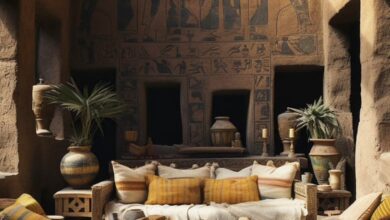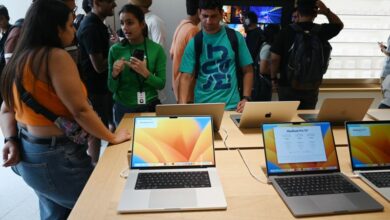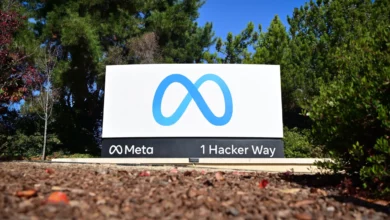Sharm el-Sheikh–At the opening session of the Internet Governance Forum (IGF), Minister of Communication and Information Technology Tarek Kamel announced that Egypt would apply the following day for a top-level domain name in Arabic (dot.masr). The move follows a recent decision by the Internet Corporation for Assigned Names and Numbers (ICANN), which coordinates between unique web addresses in order to keep the Internet a global platform, to launch domain names in Arabic, Chinese, Korean and other languages. Kamel enumerated the merits of dot.masr.
“It is a great moment for us, and I am happy that this takes place here in Sharm el-Sheikh as a recognition of our work with relevant constituencies worldwide over the last three years,” he said.
Al-Masry Al-Youm English Edition spoke with Baher Esmat, Middle East regional relations manager with ICANN about what dot.masr will mean in terms of Internet access in the region.
Al-Masry Al-Youm English Edition: Can you explain the process through which dot.masr will start to materialize?
Baher Esmat: We are a still in an evaluation process. This evaluation is conducted from a linguistic and a technical perspective of the applying country. Currently, Egypt has applied alongside a group of other applicants. Some applicants didn’t disclose their countries and preferred to keep it confidential until the registration is done. But we know that Russia is among the applicants. Generally within ICANN, there is transparency. When we work on a policy document we publish it for public comments.
Al-Masry: Do we know much at this point about who gets to register for the dot.masr domain name? Will there be an order of priority among government agencies, private institutions, non-governmental organizations, and individuals?
Esmat: This is a question that I can’t answer. It’s related to the policy of the registry, which will be assigned to operate the new domain name. This registry has to go through the existing country code name. It will have its own policies. There are policies related to trademarks and issues of Semantic Systems and Language Technology (SSLT). It will make such decisions as to whether dot.masr will be at a second or third level registration. For example, will it be www.something.com.masr or www.something.masr? The registry is still a potential body. The National Telecommunication Regulatory Authority (NTRA) will tender it out to any operator. But neither the Ministry of Communications and Information Technology nor NTRA will handle the operation, per se.
Al-Masry: Minister Kamel mentioned how the new domain names will offer avenues of investment. How do you see this happening?
Esmat: We tend to see websites having two copies of their homepages, one in English and one in Arabic. It’s a matter of showing the identity of businesses and sites in general in the Arab world. If an entity in the country wants to be identified in Arabic on the web, dot.masr will be its solution. Some businesses will be happy to switch to Arabic because of brand purposes. When a company name is Arabic and is written in the domain in Arabic, chances are you will find it more directly. But if it’s in Arabic and you look for it in English, you will have many guesses because of different styles of transliteration. Take Al-Masry Al-Youm as an example. It would be much easier if it’s looked up in Arabic since there is no one way to spell it in English.
Al-Masry: How can dot.masr be connected to the improvement of Arabic content online?
Esmat: There is a connection, but not a clear and straightforward one. There isn’t a straight line between domains and content. Arabic domain names should not be considered a magic solution to content. They will not stimulate more Arabic content immediately. They will not increase Internet penetration right away. But as the Arab Internet community, we have to work on getting more content online. All kind of content matters: user-generated content, youth input. Nothing is trivial. Facebook content is not trivial.
Thus far we have some decent Arabic content but we need more. Arabic domain names will help. We can foresee their impact. Arabic Internet users have access to the content, but some addresses remain inaccessible to non-English speakers. Having the address in your native language will definitely help direct you more easily to the desired content. But the content isn’t there yet. International Domain Names (IDNs) are just a complimentary service. They can help, drive and encourage people to think outside of the box. In Egypt, there are about 16 million Internet users, which is a 20 per cent penetration. To reach the next 10 or 20 million users, we need to get to places and communities that cannot access the Internet, either for affordability or for language reasons. It will come in the next five, seven or 10 years. Domain names in Arabic will help increase accessibility. Think of mobile penetration. We have about 60 per cent mobile penetration in Egypt. There was a huge growth in the past year that could not have happened without having Arabic language support systems for mobile sets. We would have never reached those numbers. I would generally say language is an element. But the impact of content is stronger than that of Arabic domain names.
Al-Masry: ICANN’s officials mentioned repeatedly Egypt’s role in its policy formulation. How is that?
Esmat: Egypt has been participating in ICAAN since the beginning. It’s had a constant presence in its government advisory committee and it provides its board with advice on public policy issues. In fact, Egypt had a leading role in the work on IDNs and the current fast-track system. ICANN has originally said that the introduction of IDNs for country names would take anywhere from three to five years. But with a lot of input from governments, the fast track system was introduced and governments can apply now.




